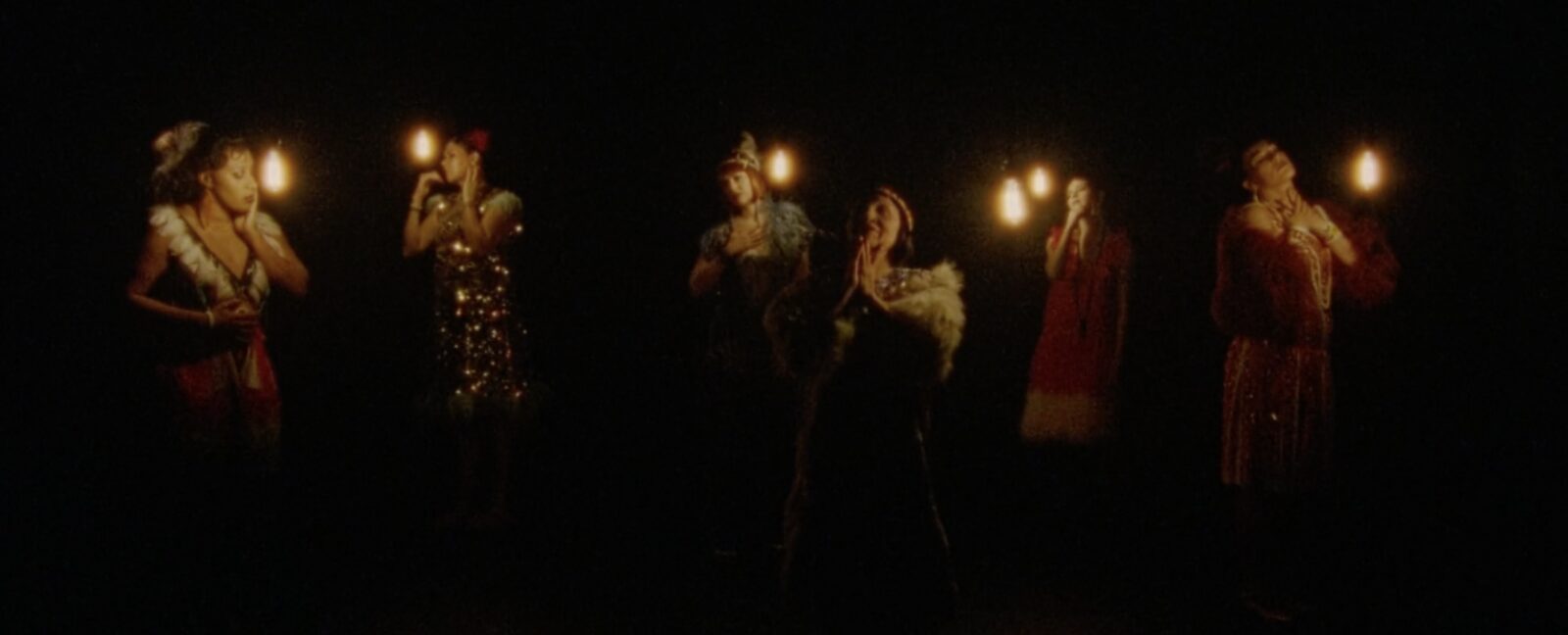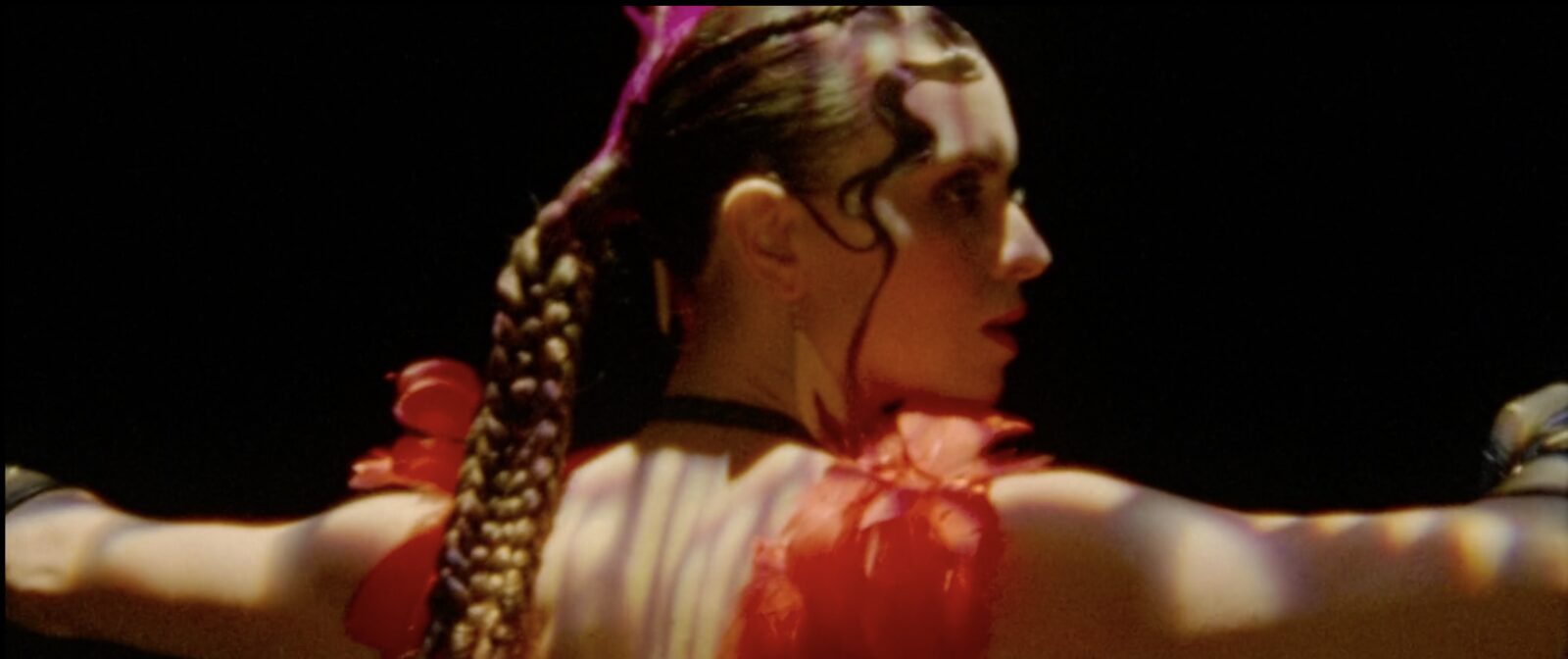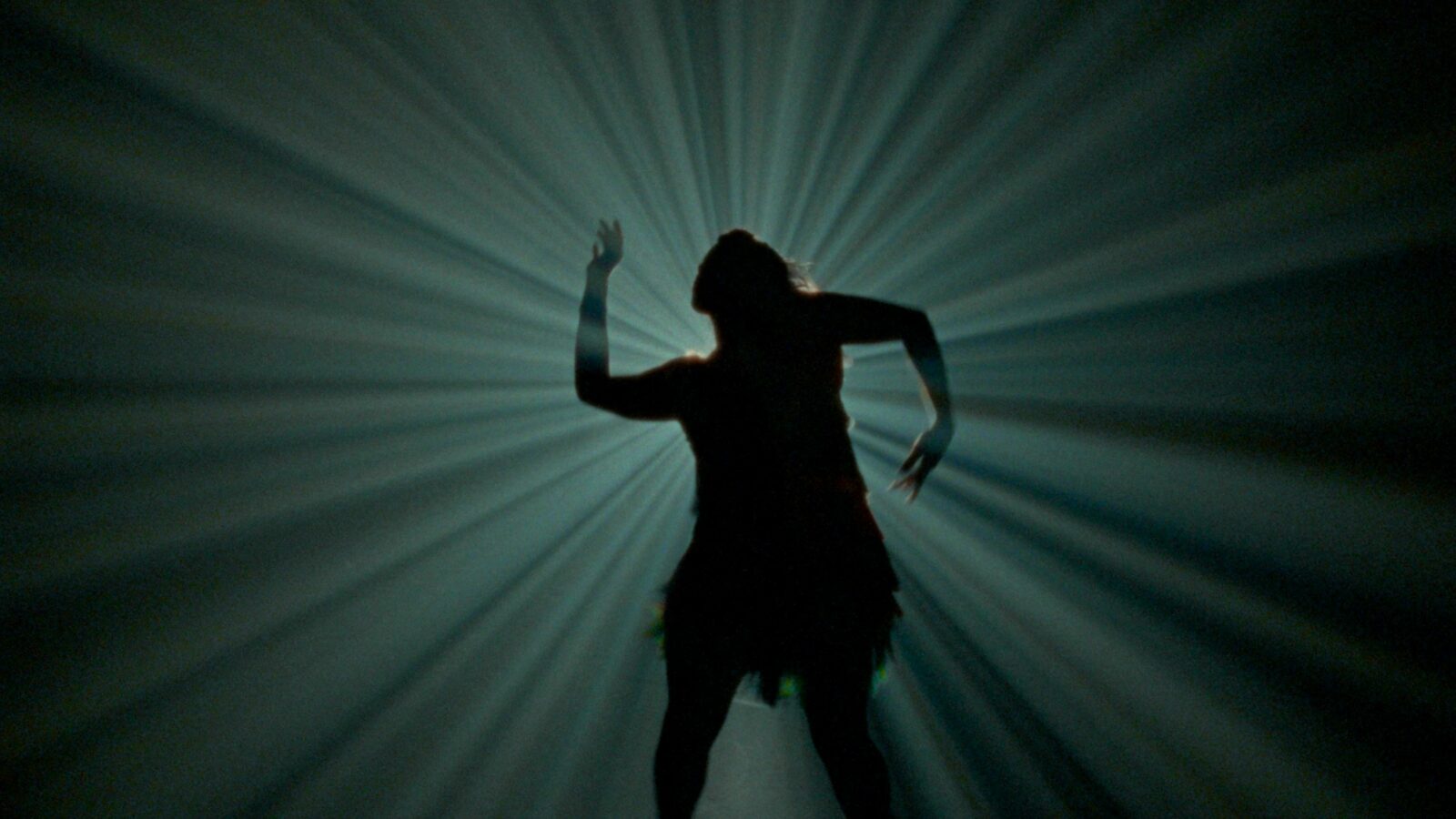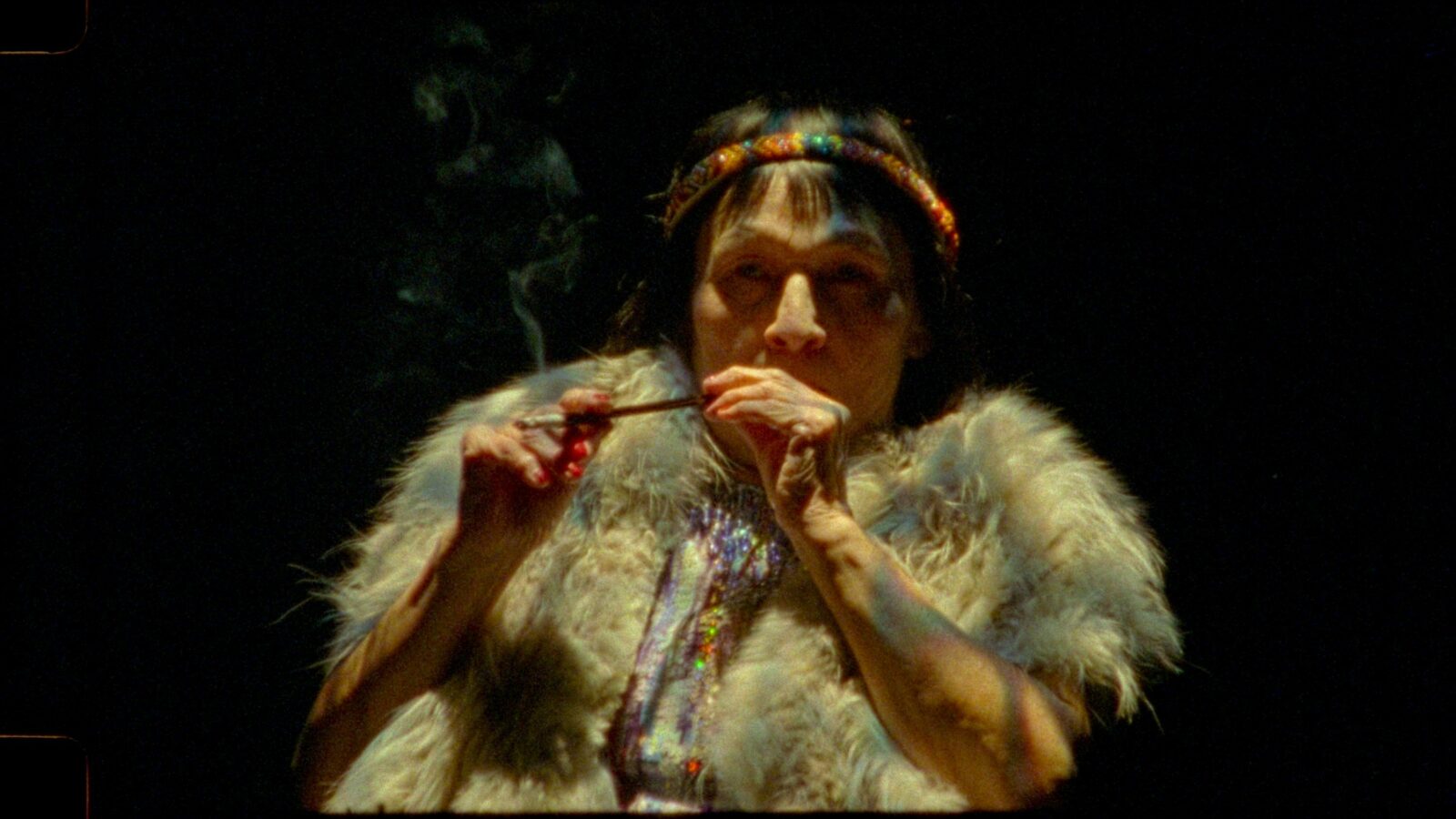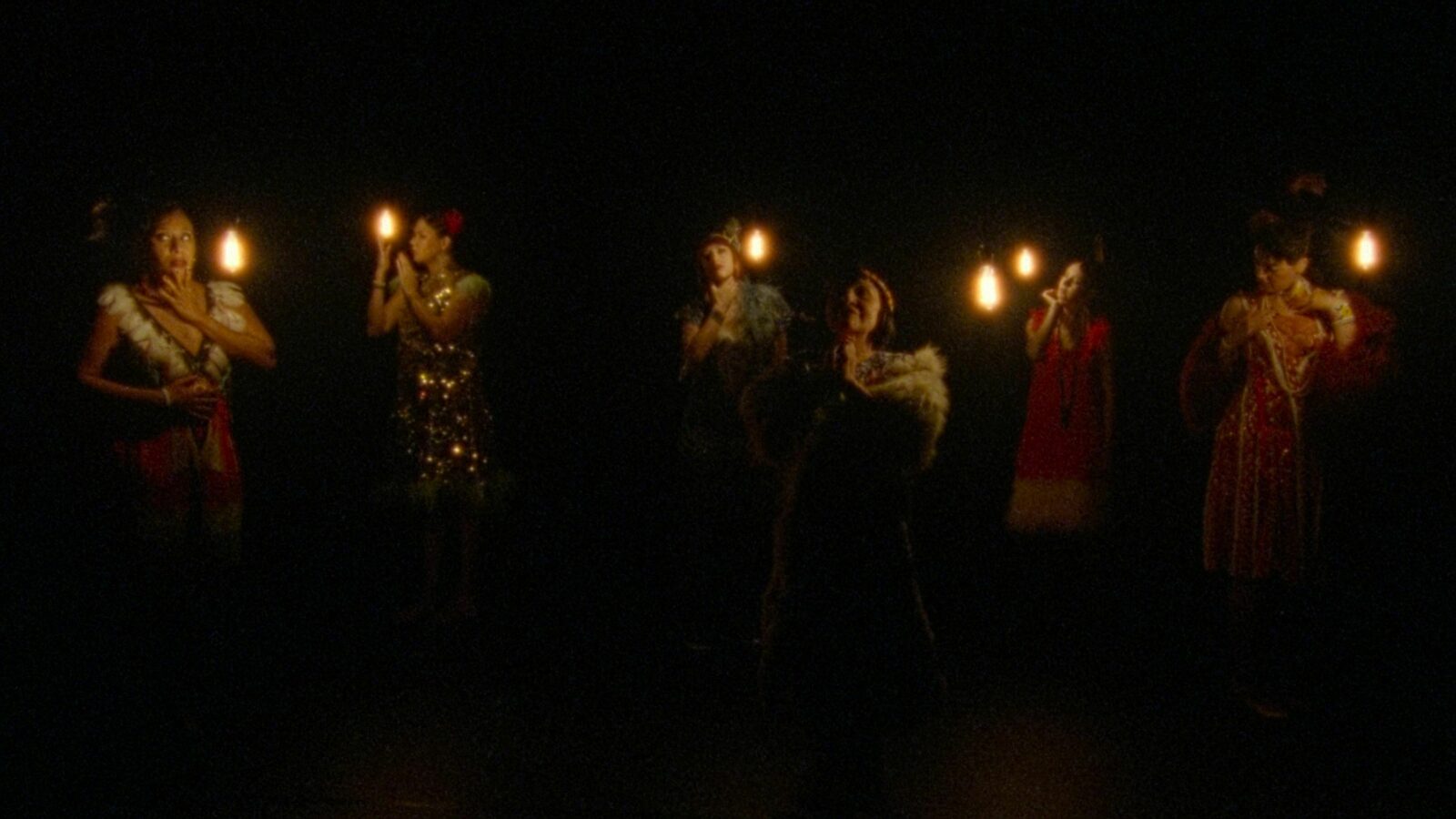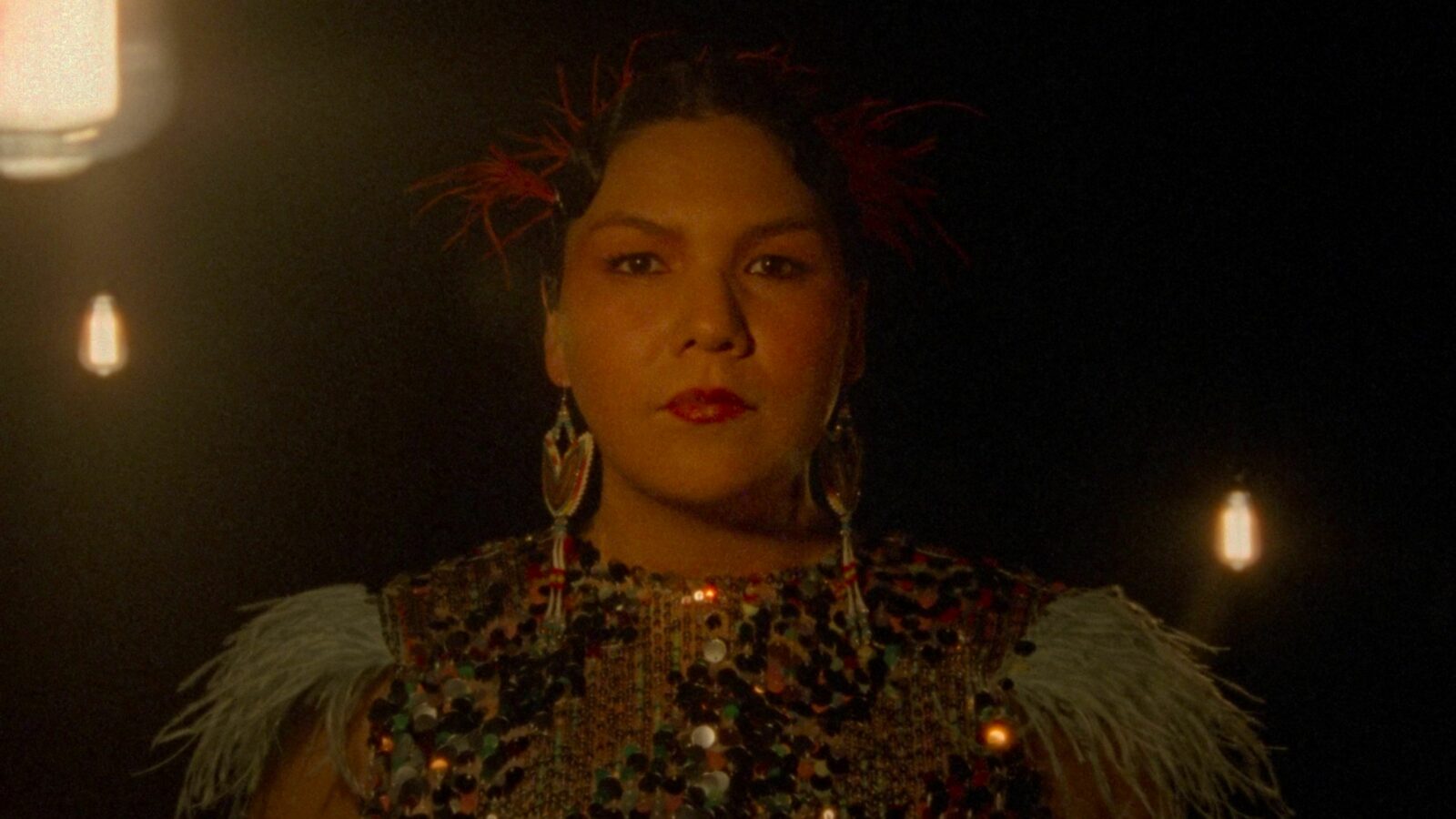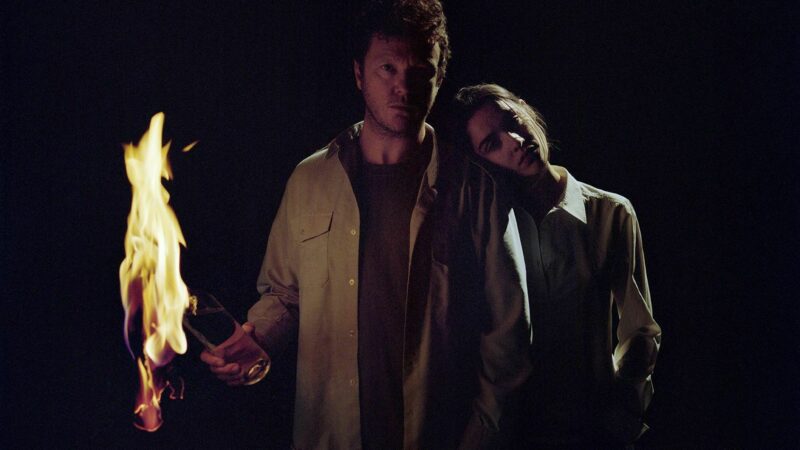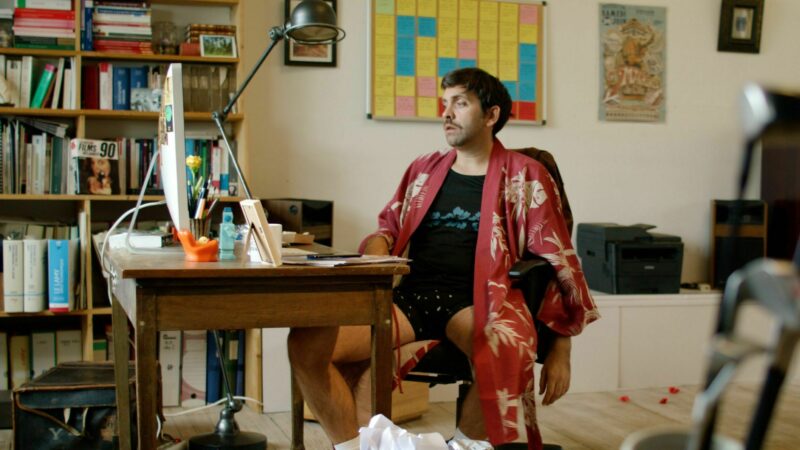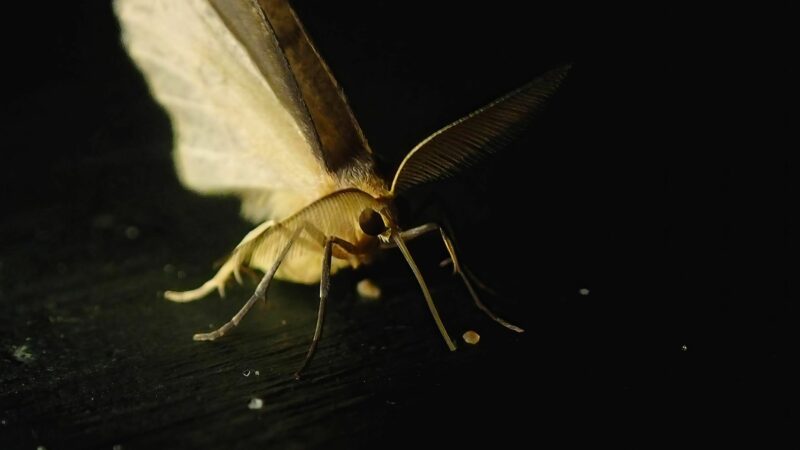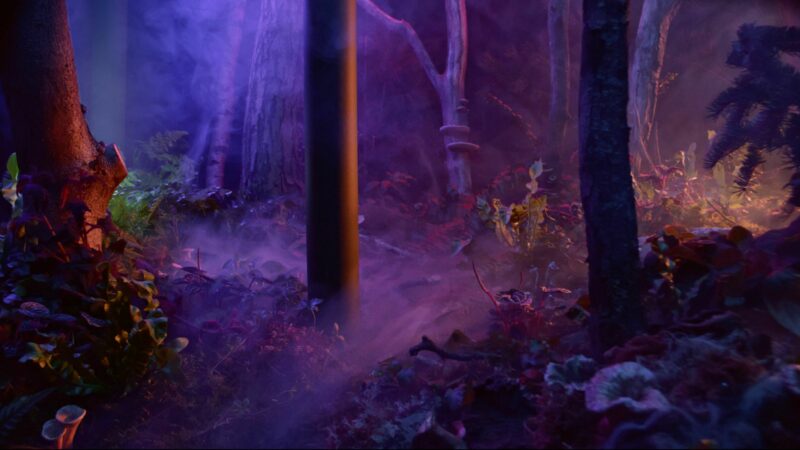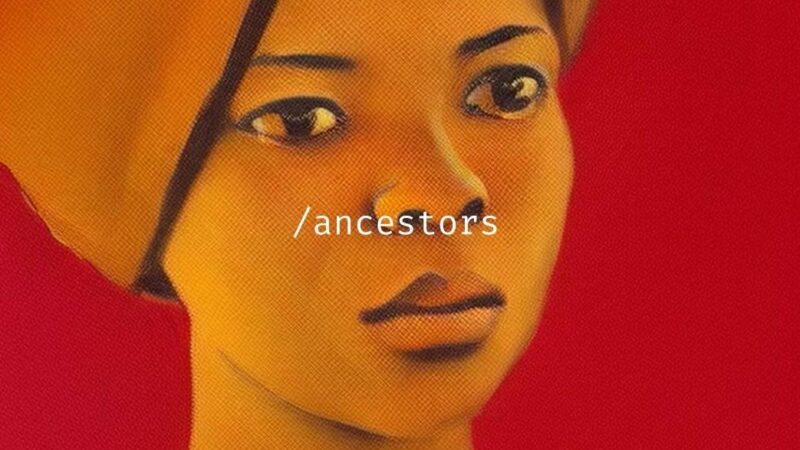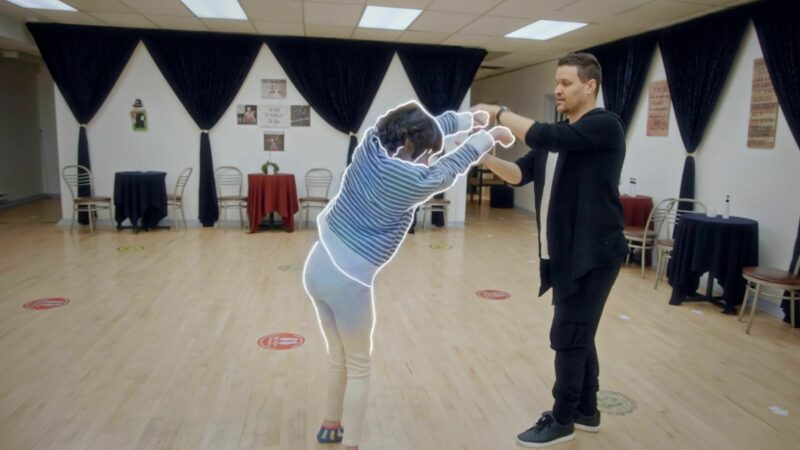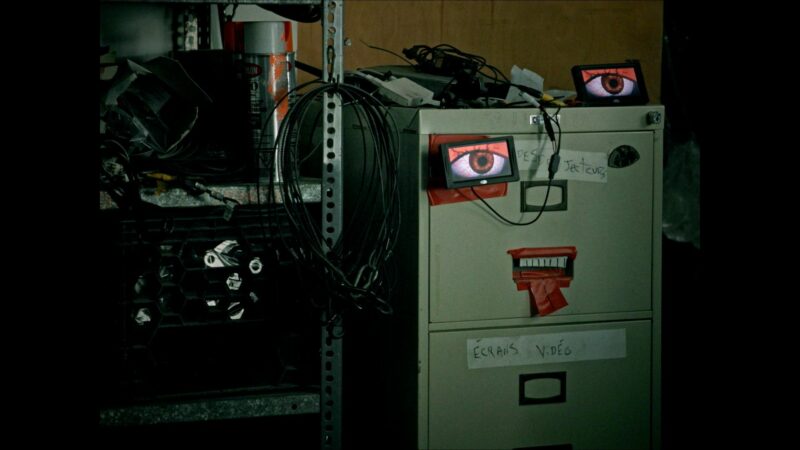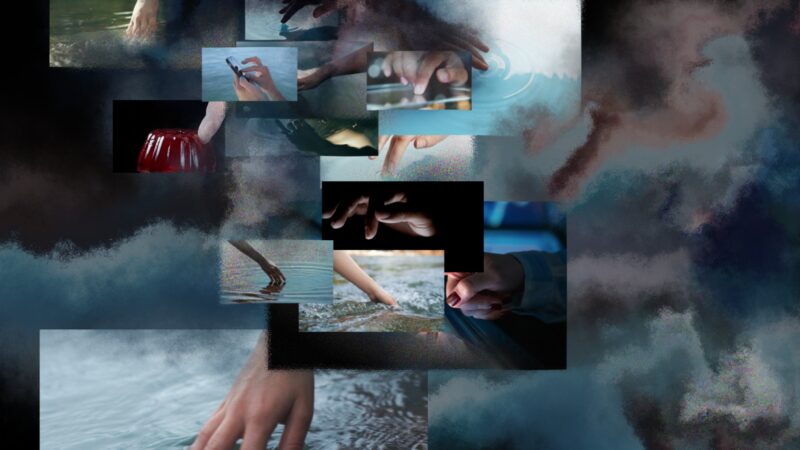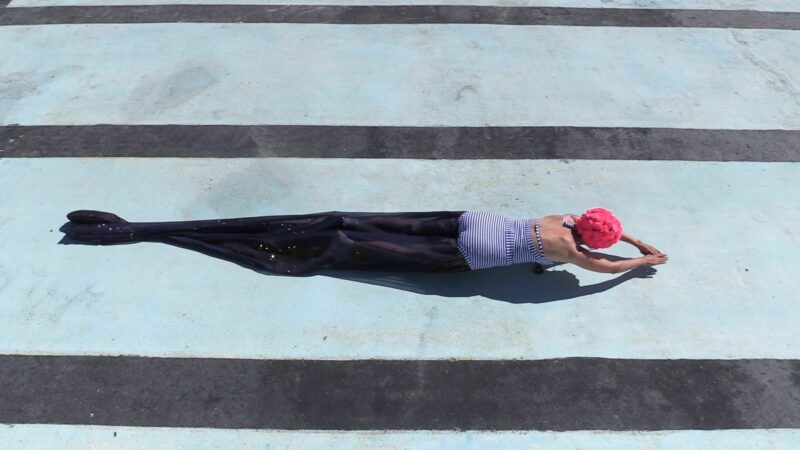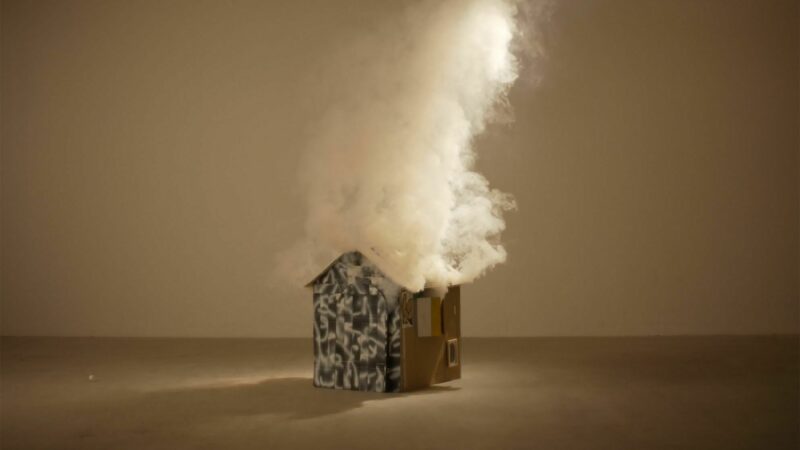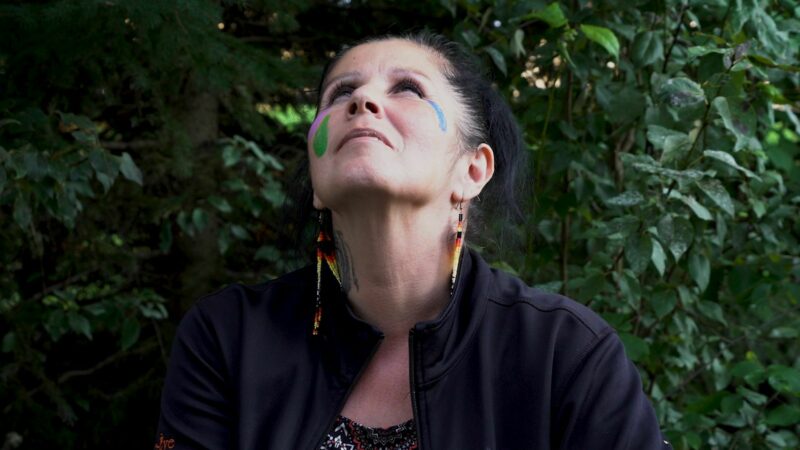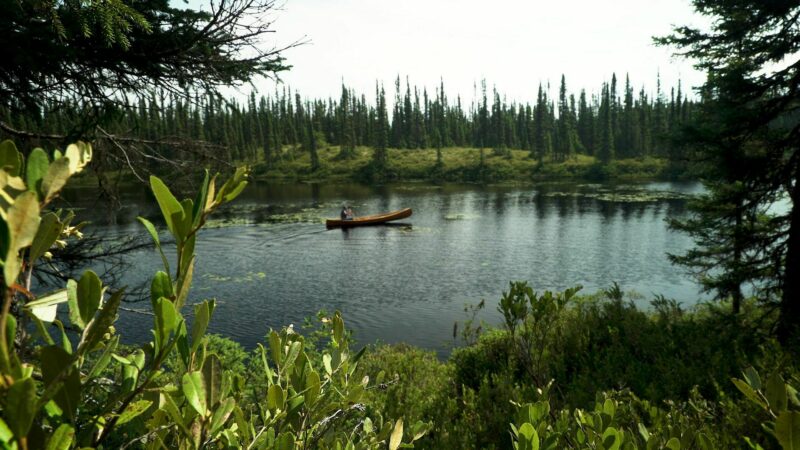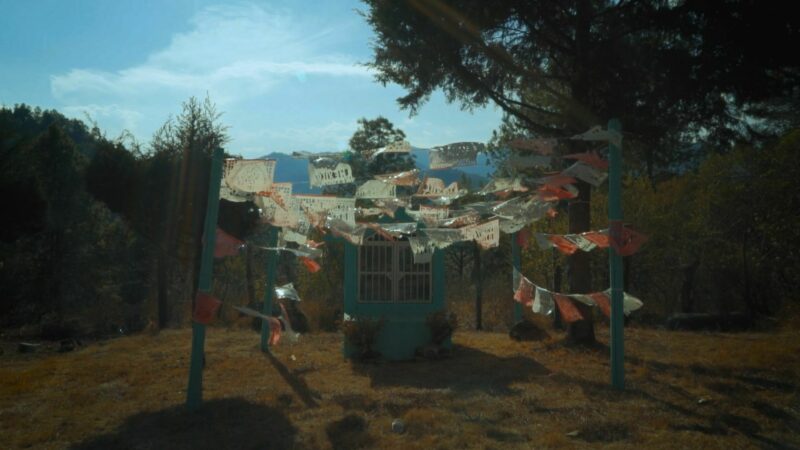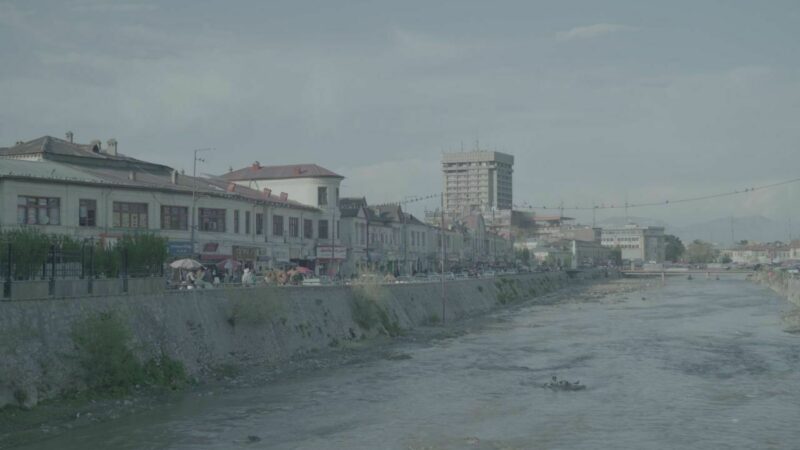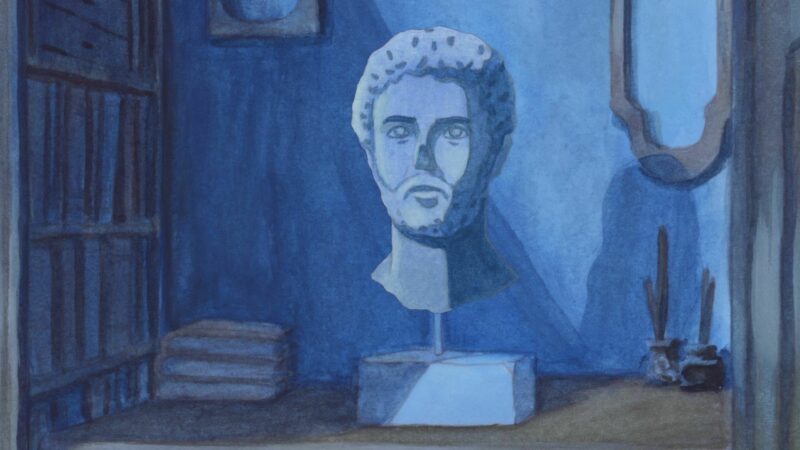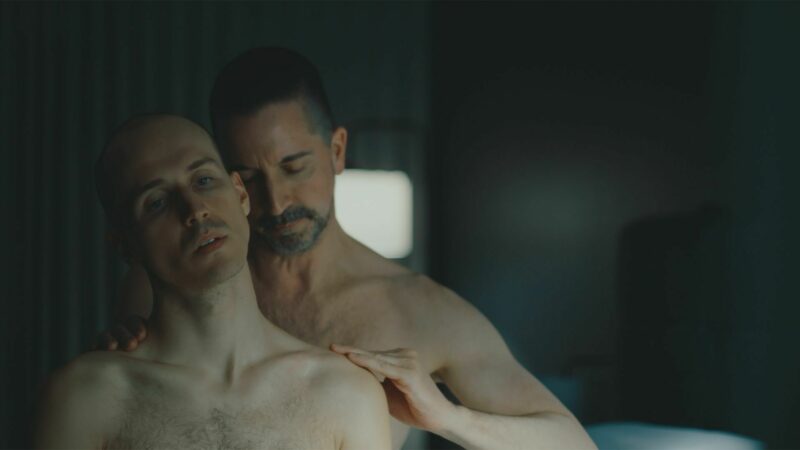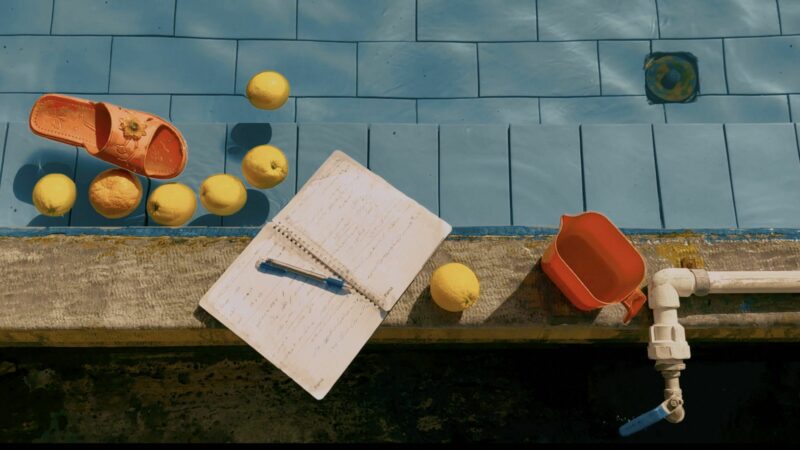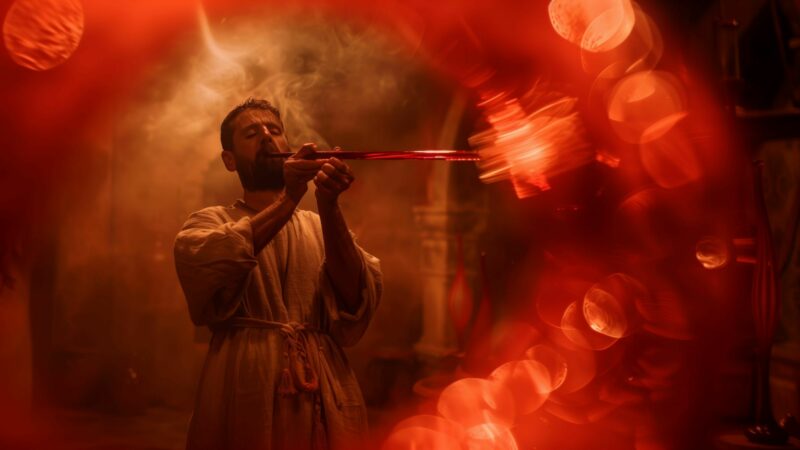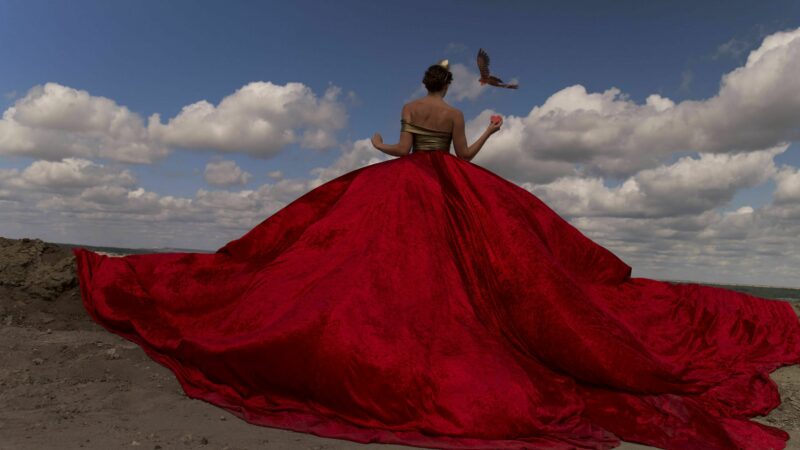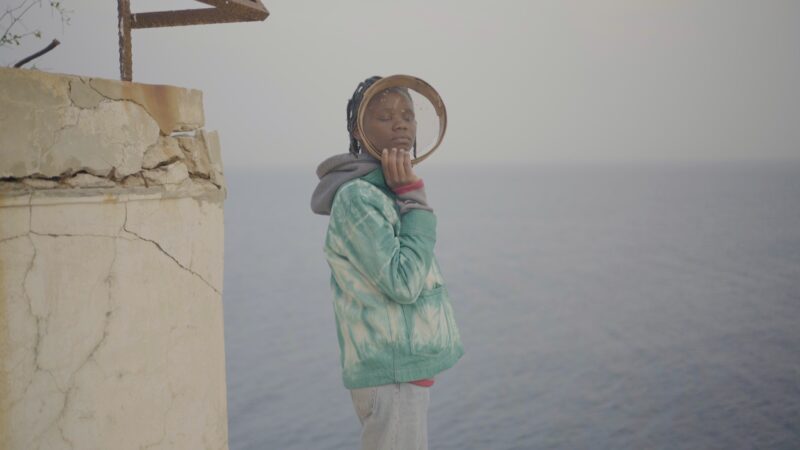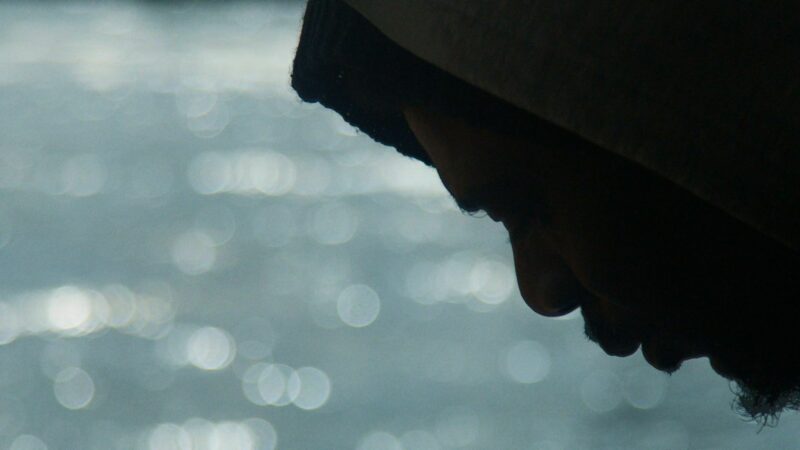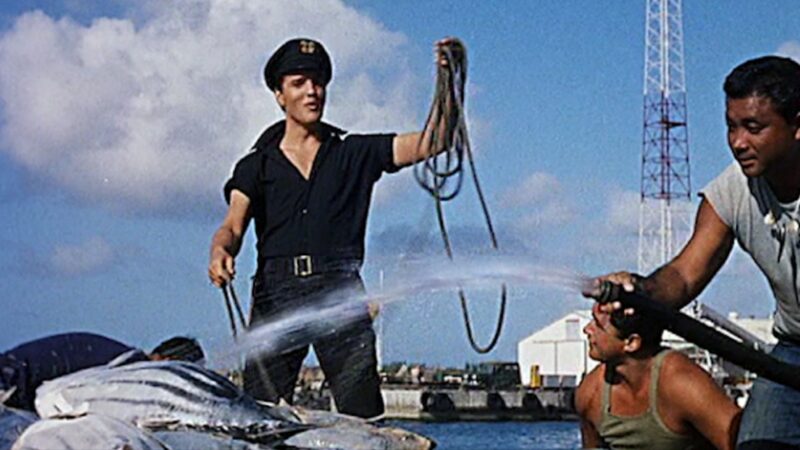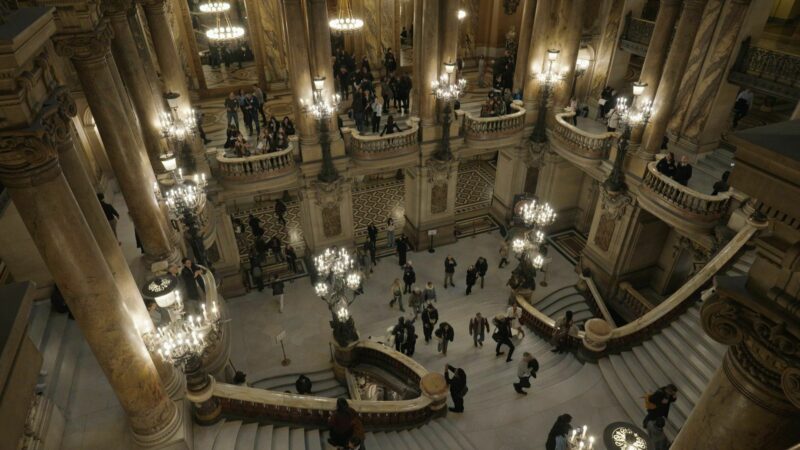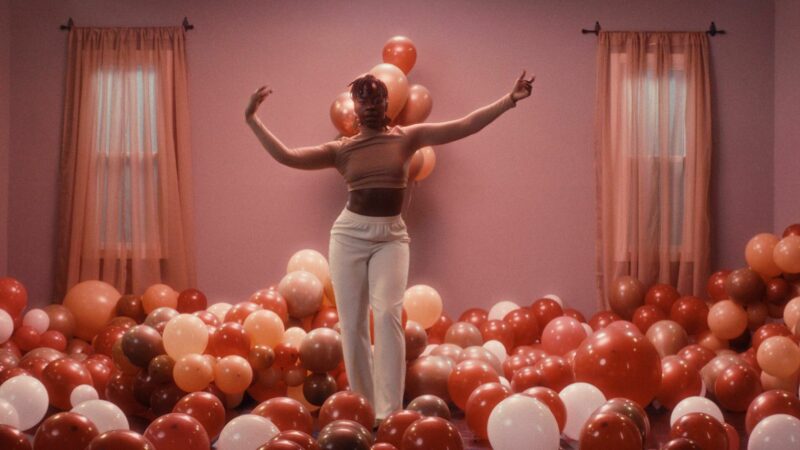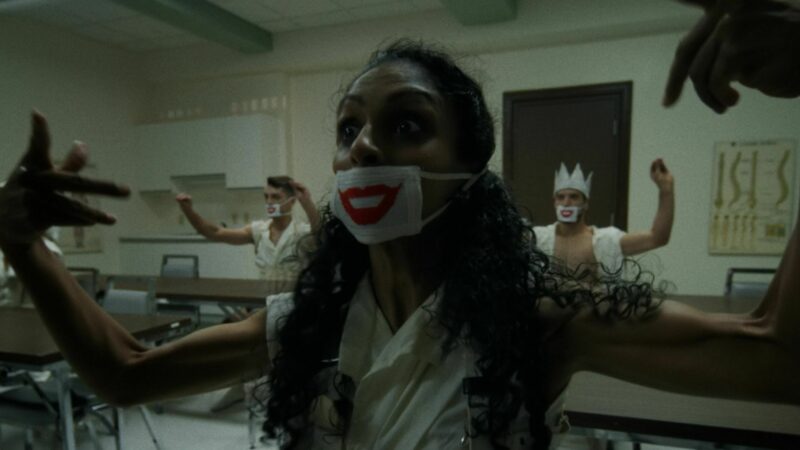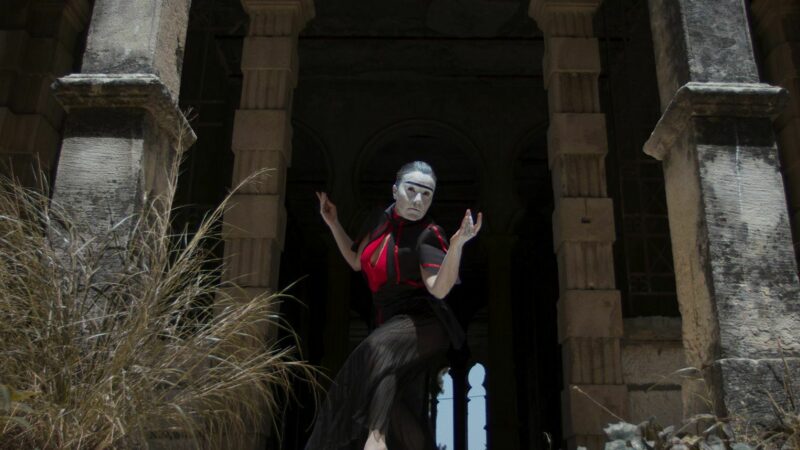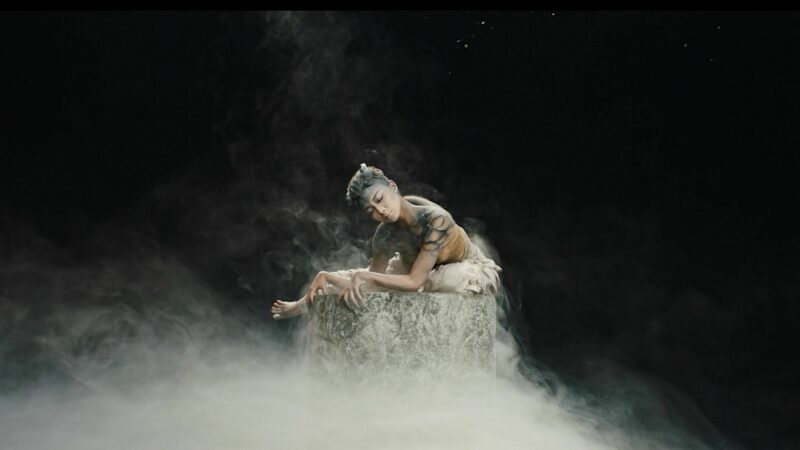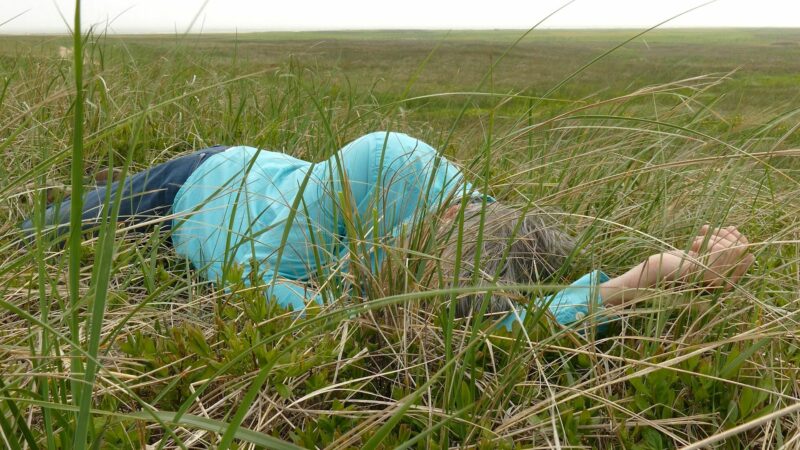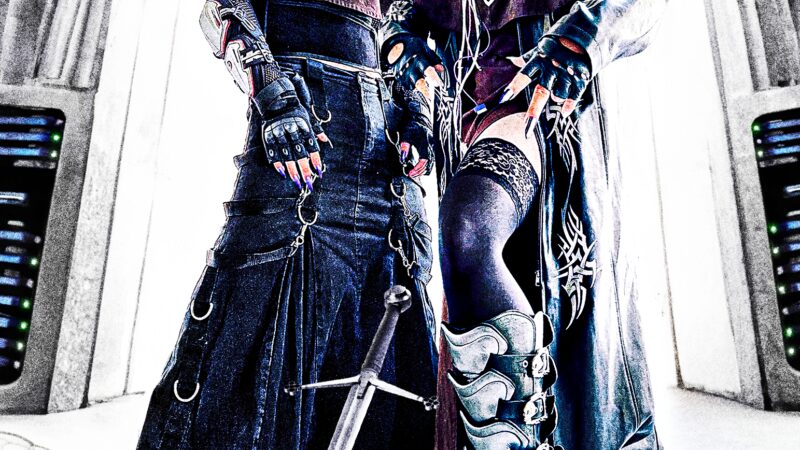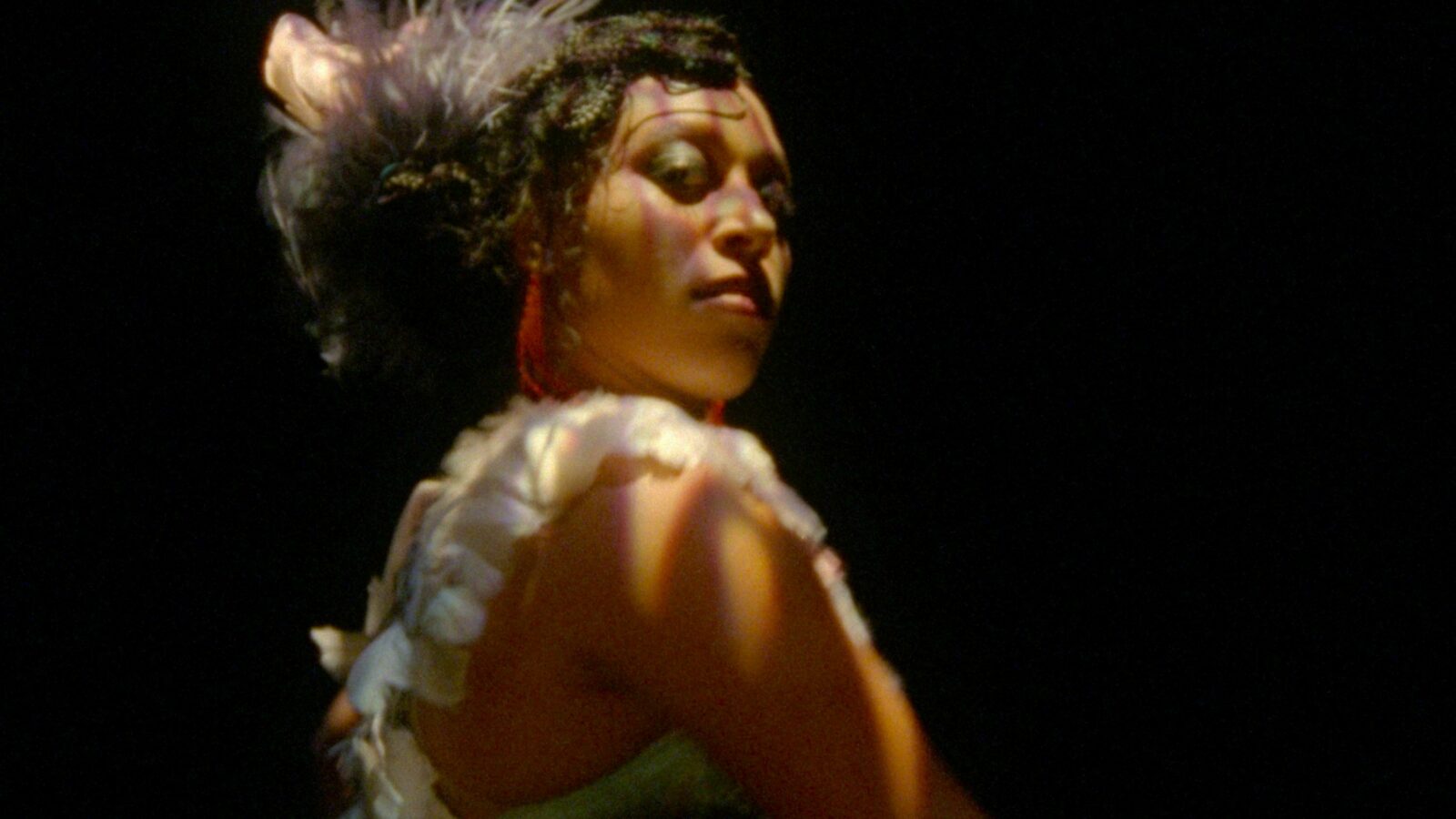
Available online from March 21-30, 2025 on ARTS.FILM
This film will be presented during the La Nuit du court event on March 22nd, 2025 at Concordia University.
Pidikwe, an enchanting short film by Caroline Monnet, blends traditional Indigenous dance with contemporary dance to create an avant-garde work at the crossroads of cinema, art, and performance. Entirely shot on 16mm to evoke the aesthetic of the Roaring Twenties, Pidikwe combines Indigenous traditional dance and contemporary dance to create a unique film where dance and language are tied to a system of knowledge and serve as healing tools rooted in the community.
Director’s statement:
I like to appropriate the tropes and attitudes of European art history to speak to current indigenous realities, but also to imagine what art movements such as Dadaism (Creatura Dada, 2026), Renaissance (History Shall Speak for Itself, 2018) or Futurism (Echoes From a Near Future, 2022) might look like, from an Anishinaabe point of view. My new film project Pidikwe, in the same vein as my works featuring indigenous women, looks to the Roaring Twenties period to capture feelings of freedom, self-expression, exuberance and creativity. The Années Folles (1920−1929) occurred after a pandemic, and was a period of economic prosperity with a particular cultural dimension, known as a time of social, artistic and cultural dynamism. Shot entirely on film to recreate the aesthetic of 1920s cinema, the project blends traditional and contemporary dance to create a unique object that blurs the boundaries between cinema, artwork and performance. For me, dance and language are linked to a system of knowledge. They are healing tools rooted in the community. It’s important to emphasize that indigenous women are survivors of centuries of assimilation, abuse, exploitation and dispossession of matriarchal values. The colonized female body is doubly threatened. It is subject to both the colonial gaze and the male gaze. Female bodies have always been anchored in colonial and patriarchal spatial constructs. This contributes to the belief that indigenous women’s bodies are up for grabs; they are objects or landscapes to be owned and controlled. I want to put these bodies back into our cities, our lives, our families and our imaginations.
- Caroline Monnet
In presence of director Caroline Monnet on March 22nd in Montreal.
Pidikwe, an enchanting short film by Caroline Monnet, blends traditional Indigenous dance with contemporary dance to create an avant-garde work at the crossroads of cinema, art, and performance. Entirely shot on 16mm to evoke the aesthetic of the Roaring Twenties, Pidikwe combines Indigenous traditional dance and contemporary dance to create a unique film where dance and language are tied to a system of knowledge and serve as healing tools rooted in the community.
Director’s statement:
I like to appropriate the tropes and attitudes of European art history to speak to current indigenous realities, but also to imagine what art movements such as Dadaism (Creatura Dada, 2026), Renaissance (History Shall Speak for Itself, 2018) or Futurism (Echoes From a Near Future, 2022) might look like, from an Anishinaabe point of view. My new film project Pidikwe, in the same vein as my works featuring indigenous women, looks to the Roaring Twenties period to capture feelings of freedom, self-expression, exuberance and creativity. The Années Folles (1920−1929) occurred after a pandemic, and was a period of economic prosperity with a particular cultural dimension, known as a time of social, artistic and cultural dynamism. Shot entirely on film to recreate the aesthetic of 1920s cinema, the project blends traditional and contemporary dance to create a unique object that blurs the boundaries between cinema, artwork and performance. For me, dance and language are linked to a system of knowledge. They are healing tools rooted in the community. It’s important to emphasize that indigenous women are survivors of centuries of assimilation, abuse, exploitation and dispossession of matriarchal values. The colonized female body is doubly threatened. It is subject to both the colonial gaze and the male gaze. Female bodies have always been anchored in colonial and patriarchal spatial constructs. This contributes to the belief that indigenous women’s bodies are up for grabs; they are objects or landscapes to be owned and controlled. I want to put these bodies back into our cities, our lives, our families and our imaginations.
- Caroline Monnet
In presence of director Caroline Monnet on March 22nd in Montreal.
Other festivals:
Berlinale, Germany (2025)
Festival REGARD, Canada (2025)
Berlinale, Germany (2025)
Festival REGARD, Canada (2025)
| Director | Caroline Monnet |
| Script | Caroline Monnet |
| Director of Photography | Nicolas Canniccioni |
| Artistic Direction | Caroline Monnet |
| Editing | Marc Boucrot |
| Camera | Nicolas Cannicionni |
| Choreography | Clara Furey |
| Cast | Caroline Monnet, Joséphine Bacon, Aïcha Bastien N'Diaye, Catherine Boivin, Catherine Dagenais-Savard, Emilie Monnet |
| Sound | Ilyaa Ghafouri |
| Music | Alessandro Cortini |
Sessions
• Université Concordia - H110, Pavillon Henry F. Hall
Saturday, march 22, 2025, 07:00 p.m. — 10:26 p.m.
• Musée national des beaux-arts du Québec (à Québec)
Sunday, march 23, 2025, 03:30 p.m. — 04:49 p.m.


Production
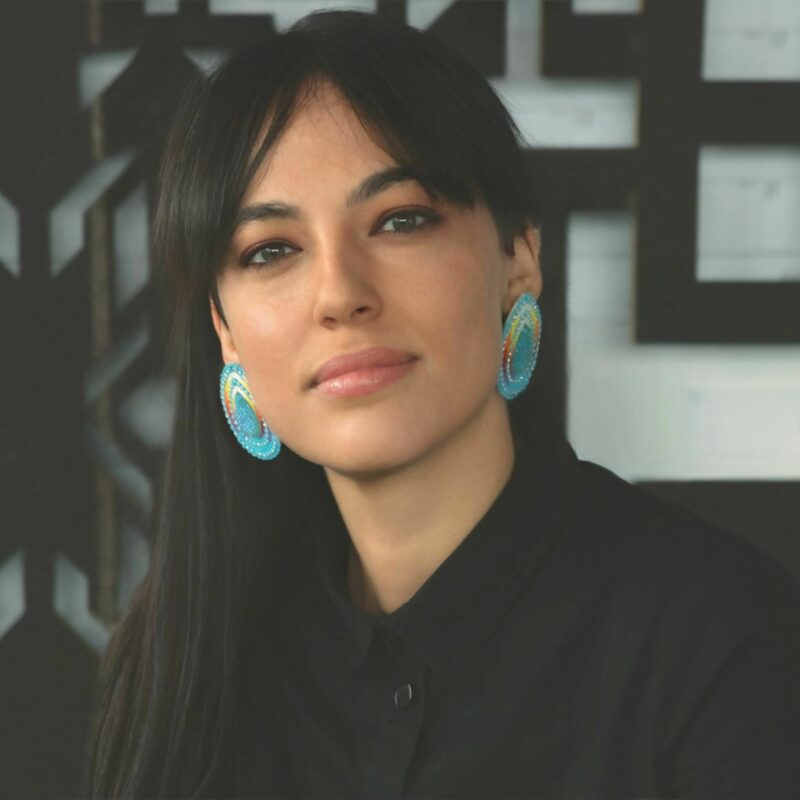
Caroline Monnet
Caroline Monnet is an award winning multidisciplinary artist based in Montréal. Her work has been programmed extensively in Festivals and Museums around the world, including Toronto International Film Festival, Sundance, Berlinale, Göteborg and Rotterdam, as well as the Whitney Biennale, Frankfurt Kunsthalle, Montreal Museum of Fine Arts and the National Gallery of Canada. She was selected for the Cannes Festival’s Cinéfondation residency in Paris. She received the Sundance Institute’s Merata Mita Fellowship and was named compagne des Arts et des Lettres du Québec.
Biographical notes provided by the film production team and edited by Le FIFA’s team
Biographical notes provided by the film production team and edited by Le FIFA’s team
Bootlegger (2021)
The Seven Last Words (2019)
Emptying the Tank (2018)
Ceremonial (2018)
Creatura Dada (2016)
The Seven Last Words (2019)
Emptying the Tank (2018)
Ceremonial (2018)
Creatura Dada (2016)
In the same sessions
Université Concordia - H110, Pavillon Henry F. Hall
Saturday, march 22, 2025, 07:00 p.m.


Musée national des beaux-arts du Québec (à Québec)
Sunday, march 23, 2025, 03:30 p.m.


You would like




